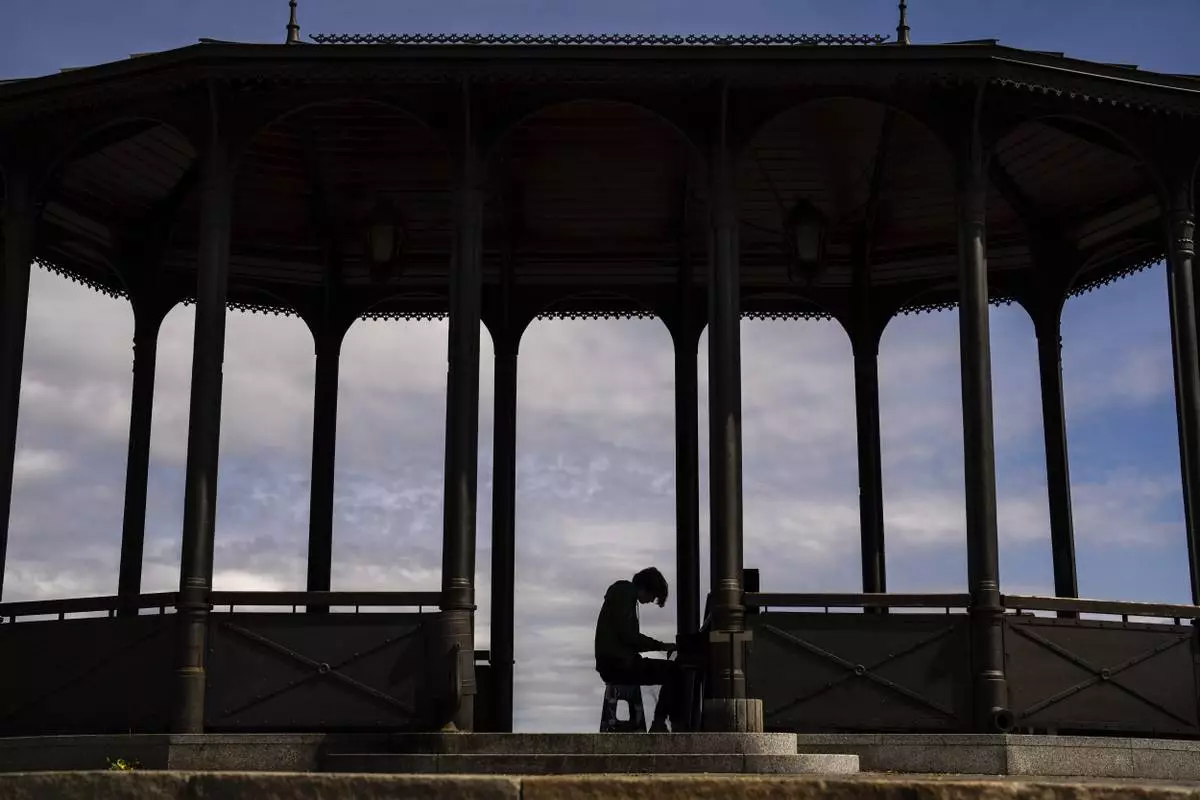An increasing number of House Democrats say they want an impeachment inquiry. But most of them say they aren't ready to seek President Donald Trump's removal from office.
Confused? You aren't alone. The two-dozen or so Democrats who support the move are working overtime to explain to the public that they, at this point at least, see impeachment hearings as a route to combat Trump's stonewalling of their investigations. If the House Judiciary Committee opens an impeachment inquiry, they will immediately have better standing with courts as they try to enforce various subpoenas.
Whether voters will understand — or support — that distinction is uncertain. House Speaker Nancy Pelosi has been cool to the idea, telling rank-and-file members of her caucus in a meeting Wednesday morning that they needed to be patient, yet persistent as they investigate Trump's White House.
A look at what it would mean if Democrats were to open an impeachment inquiry:
ARE DEMOCRATS IN CONGRESS IMPEACHING TRUMP?
Not yet. But the steps they are already taking — broad investigations, subpoenas for administration officials and publicly questioning Trump's leadership — aren't that different from what official impeachment proceedings would look like. The House Judiciary Committee is focused on getting special counsel Robert Mueller's full report and talking to people who were mentioned in it, the House Ways and Means Committee is going after Trump's tax returns, and several panels are looking at Trump's business dealings.
But there is one critical difference: Without impeachment, there is no process to remove Trump from office.
WHAT'S AN IMPEACHMENT INQUIRY?
The word "inquiry" doesn't appear in the Constitution related to impeachment, but it's become the latest buzzword among Democrats who want to distinguish the investigative phase from officially charging the president. And it's long been precedent that the House Judiciary Committee will do a thorough investigation before a vote to determine whether a president has committed "high crimes and misdemeanors." The committee could then vote on articles of impeachment, sending those articles to the full House.
IF THERE'S AN IMPEACHMENT INQUIRY, DOES THE HOUSE HAVE TO VOTE ON WHETHER TO REMOVE THE PRESIDENT?
No. Democrats say they could use the formal process to conduct their investigation, and decide later on whether to approve articles of impeachment. And even if the House were to approve charges against the president, it's up to the Senate — now controlled by Republicans — to hold an impeachment trial. A two-thirds vote in the Senate would be required to convict and remove Trump from office, an outcome Democrats acknowledge is unlikely.
But some Democrats stress that an impeachment inquiry does not have to lead to charges and a trial. They say the process would boost House lawmakers' standing in court as they move to enforce subpoenas for documents and witnesses.
They acknowledge this strategy is difficult to explain. New York Rep. Kathleen Rice, one of the Democrats who supports opening up the impeachment process, said this week that she knows there is work to do in educating the public on that idea.
"This is what I'm going to spend my time doing," Rice said. "Trying to explain to people that this is a process."
HOW MANY DEMOCRATS ARE SUPPORTIVE OF OPENING AN INQUIRY?
Around two dozen members have spoken in favor of starting impeachment, and there are likely more in the caucus who would support the idea. Many of the most outspoken are members of the House Judiciary Committee, including Maryland Rep. Jamie Raskin and Rhode Island Rep. David Cicilline. Both men were part of a group who pushed Pelosi on the idea in a meeting Monday evening, to no avail.
Several other members have said it's not time for impeachment, yet. But many predict it will be inevitable.
WHY THE INCREASED PUSH FOR IMPEACHMENT?
The calls have ramped up as Trump has broadly stonewalled almost all of the Democrats' investigations. The debate reached a pitch on Tuesday after former White House counsel Don McGahn, acting on Trump's directions, defied a Judiciary Committee subpoena and didn't show up at a hearing.
The Democrats say they want to protect the institution of Congress, warning that the balance of powers is at stake. There is also some pressure at home for lawmakers who represent the most liberal districts. Several polls conducted in late April found a majority of Democrats are in favor of impeachment, though no more than about 4 in 10 people overall were supportive.
SO, WHY AREN'T THEY DOING IT YET?
The two most important people in the process — Pelosi and House Judiciary Chairman Jerrold Nadler — are still reluctant, and have emphasized early successes in court. Pelosi has said she believes Trump is "goading" Democrats into impeachment and that lawmakers need to take a step-by-step approach.
Both lawmakers were in Congress during President Bill Clinton's impeachment and are wary of its political drawbacks. They have each said they would like to have bipartisan support to move forward.
Neither has ruled out impeachment, however. At the Wednesday morning meeting, Pelosi repeated her message of patience but also made it clear Democrats won't let up on the president.
"We do believe it's important to follow the facts," Pelosi told reporters afterward. "We believe that no one is above the law, including the president of the United States, and we believe that the president of the United States is engaged in a cover-up."
Associated Press writers Lisa Mascaro and Emily Swanson contributed to this report.










